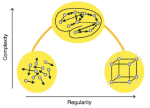Oral Exams Ahead
October 11, 2011 Leave a comment

After a long delay in the process oral prelim exams are friday during the midday. If successful, the meeting place for celebratory activities will be posted here by 2:00 pm our thereabouts
Outside Adventures & Garden Intermissions
October 11, 2011 Leave a comment

After a long delay in the process oral prelim exams are friday during the midday. If successful, the meeting place for celebratory activities will be posted here by 2:00 pm our thereabouts
June 23, 2010 Leave a comment
The mighty Scion lost an oxygen sensor today so while waiting for the repair I thought I’d finish Ira Shor’s When Students Have Power. It’s a great review of the implications of democratic education and hegemony couched in a narrative about a community college class Shor taught a few years back.

Later in the day I’m reviewing some material for the school’s web site when I came across a variety of sites trying to move democratic involvement to the web. One site was a branch from a Kurzweil article on The Internet of Things that looked at real-time applications like train status and stations in the UK in light of citizen participation in government.
The item that most caught my eye was an app for reporting road damage and concerns.
The map shows all calls for road repair and concerns along with citizen photos of the problems. Seems so simple, yet so democratic. Some of the concerns have little to do with asphalt (football being played on the highway) but you could see some kind of evaluation of cost and urgency attached to each entry. The remarkable group working on this and other projects is mysociety.org
How might this be adapted to other citizen input needs?
November 24, 2009 Leave a comment
 Made my way to the st.Paul lib to study tonight. The pressing question is how should our growing understanding of complexity influence the content and organization of curriculum. So many things to say but such a restrictive space to assemble them into.
Made my way to the st.Paul lib to study tonight. The pressing question is how should our growing understanding of complexity influence the content and organization of curriculum. So many things to say but such a restrictive space to assemble them into.
The halls are quiet here but did run into a former student majoring in social justice. Perhaps I’ll start with Dewey…
 Later… just turned around to find not another soul in the study area. Makes for a quiet study space when all you can here is distant doors and the sound of the heaters circulating the air. SO one way to measure complexity is by looking at how something, like curriculum is organized/ ordered. A patterned and predictable order with clear hierarchy and rules for relationships has no complexity. Neither does a completely random collection with relationships between the parts that are not predictable and have not apparent pattern. Complexity lies between the two. In cognition complexity is measured by the patterns of firing of neurons in the brain. Highly ordered sensory events are matched by highly ordered patterns of firing. Spontaneous and random sensory events are evidenced by different patterns reflecting the brains general pattern for dealing with novelty.
Later… just turned around to find not another soul in the study area. Makes for a quiet study space when all you can here is distant doors and the sound of the heaters circulating the air. SO one way to measure complexity is by looking at how something, like curriculum is organized/ ordered. A patterned and predictable order with clear hierarchy and rules for relationships has no complexity. Neither does a completely random collection with relationships between the parts that are not predictable and have not apparent pattern. Complexity lies between the two. In cognition complexity is measured by the patterns of firing of neurons in the brain. Highly ordered sensory events are matched by highly ordered patterns of firing. Spontaneous and random sensory events are evidenced by different patterns reflecting the brains general pattern for dealing with novelty.
In between lies how the brain deals with complexity. Now, if I can just link these ideas to the curriculum imperative.